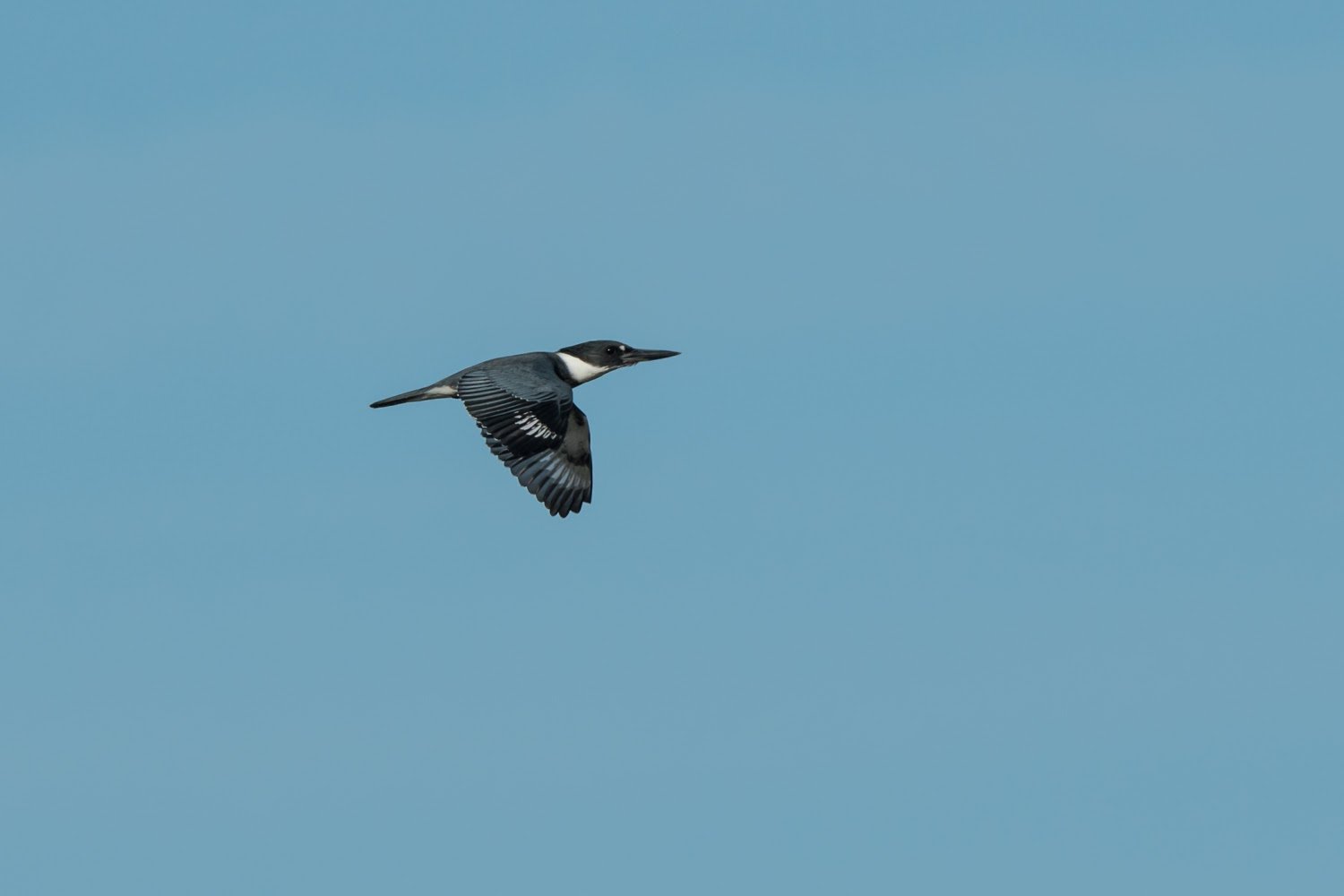several flocks of Wood Ducks
several Double-crested Cormorants
five Bonaparte's Gulls (still in winter plumage)
Tree Swallows
a few Rough-winged Swallows
Last Sunday afternoon with my son Alan, we managed to find among the abundant rain pools (maybe snow melt pools would be more apt) one magic little pond with two Greater Yellowlegs, two Pectoral Sandpipers, twelve Wilson's Snipes, and one female Blue-winged Teal. In the background, the songs of Red-winged Blackbirds chorused from a plowed field and from tall sycamores.
After such a prolonged snowy, moderately cold winter, I have felt this need to head outside and search for migrating birds. March 5th I was even talking about this with the barber while I got a haircut. He said it was a real treat to be hearing robins singing. It especially cheered him, he said.
I have been mulling over how the transition from winter to spring has occurred the 57 times I have seen it. Right now, March wind is kicking like crazy in the oaks across the street. Nothing at all unusual there.
And all this month I have been thinking of many old relatives, how they spoke of spring tonics, something to liven the blood, maybe thin the blood, stir the soul.
Some kept saying they'd share some such potion with me, but I never tasted any of that sort of drink.
But when I was a little child, one tradition became part of my own---gathering some dry land creasy (cress)aka Barbarea verna and B. vulgaris. I would eat some of the leaves raw right there in the salad patch. And then my father (and sometimes my grandfather) would pick a sack full to take home to be cooked, a big old mess of greens, we'd call it. These foods had lots of vitamin A, and early in the season didn't need to be boiled more than once, because they weren't bitter. Later, the kale, mustard and turnips sprouted new leaves, and these were also delicious additions to springtime supper.
In the spring branch downstream from where we got our drinking water for the house, there was a long run of water cress (Nasturtium officinale). We devoured some of that also. My Papa Kessler told me that years ago, I believe during the Great Depression, maybe even before that, folks would travel to the spring branch from neighboring farms, and gather up large sacks of water cress for their families--there was that much of it growing in the waters.
For further reading about creasy greens:
http://davesgarden.com/guides/articles/view/2352/
Sometimes I would see large flocks of robins, and sometimes grackles and red-wings. Toads and spring peepers would be singing their wild froggy tunes for mates. I was allowed to be distracted and allowed to wander around our farm and neighbor's farms to see these frogs, to see their masses or strings of eggs strewn in rain pools, around twigs and dark, sodden, crumbled leaves.
The tone of their songs fit dampness and fog and cool spring air.
Here's my first digression, a little blurb on the etymology of tone, tune and tonic.
These words originate in the Greek word tonos. The meaning of this word early on applied to vocal pitch, raising of voice, accent, key in music, with an original notion of "a stretching taut string."
"Tonic" as applied to an herbal medicine had to do with the idea of toning the body, making a person more healthy.
And "tune" went through Scottish and back into English as a toned song, a wonderful melody, again something toned, stretched, vocal. This is my own brief rendition of the origin of these words. One of my favorite activities was and still is reading unabridged dictionaries, and dictionaries focusing on word origins.
This digression brings me to another digression...my mother tells me that she has been enjoying the visits of several birds to the feeders the last few days, especially the two male Red-winged Blackbirds that jaunt down to the long sheet of tin over a stack of stovewood, to keep the wood dry. My parents have a couple of traditional bird feeders that they keep well stocked, but they like to spread some scratch grain and sunflower seeds on this roofing tin sheet. Lots of birds congregate there and feast heartily. She says she is looking forward to the Rose-breasted Grosbeaks that will arrive in late April or early May.
And to continue digressing...a sideways tangent curving somewhere. I grew up there in Ferrum, Virginia. We lived along a dirt road with the state road number 781. Now that road is paved and has a street name, Rambling Rose Road. I think it is named for one of the early bluegrass, old time bands, the North Carolina Ramblers, with Charlie Poole and Posey Rorrer. One of my father's best friends Tom Waid was, as a young man, almost a member of that band. He chose to stay home rather than ramble and play music all over the region; I believe he stayed to take care of relatives who were suffering from tuberculosis (some of these family members died from that disease).
Family legend has it that Charlie Poole (or one of the members of his band) composed a song called "Budded Rose" on the porch of a house on Flint Hill a small local ridge that edged along the border of my grandfather's farm. Hence I guess the street name of that road I used to bike, a road where I first saw a Merlin buzz across and down on a flock of migrant blackbirds many years ago. "Budded Rose" I think was first recorded in a studio September 1926.
Since I grew up in a farming land, a bluegrass music land, I spent a lot of young years learning about the plants and animals there, also learning to play guitar. Many of my mother's relatives played old time blue grass songs. One of my distant kin of my mother's people is Buddy Pendleton. He's an amazing fiddler. You can read more about him at this link, and even listen to a couple of fiddle tunes:
http://www.virginiafolklife.org/recordings/buddypendleton/page-1.html
Today while I was driving home, I heard one Red-winged Blackbird singing from a willow in Fairlawn. I thought of a line from Henry David Thoreau's journal regarding its song:
Red-winged blackbirds liquidly warbling and whistling in the willows
And I thought of the one lone male Red-winged Blackbird holding a territory and singing for a mate from first a power line wire, posts with no tresspassing signs, a snag of black locust, all this by an artificial wetland, a catchment of runoff from a parking lot here in Radford. As far as I know, he never attracted a mate last year. Two weeks earlier last year mid-March, a sunny morning, there had been twenty or so males singing there, and in nearby scrubby willows and box elders. This one male persisted in singing from various perches at this locale through June.
You can listen to some red-wing songs and other vocalizations online at the Journey North site at this link:
http://www.learner.org/jnorth/tm/spring/RedwingDictionary.html
Last Saturday a male red-wing was singing there again, had the entire run of meanders to itself. Stickweed (wingstem), chickory, and other dead weeds from last autumn caught its songs. And me, I scanned the whole place looking for a long while at how it was an isolated creature. I wonder now if it will find a mate. Why does one red-wing try to make this place its home? Why do the other males scatter to other marshes? I plan to look there this weekend to see if one red-wing continues to sing there, or if he too has vanished to better habitat.
Last year's bird puzzled me just like this one does now. And that puzzling prompted a poem that I called "Transitory Concerts" about playing music at the edge of the musician who never attracted fame, and about the red-wings that moved on. BTW, in "real life" I haven't sold my guitar, still dabble at chording and picking old songs.
TRANSITORY CONCERTS
I sold my guitar across the ridge.
It had warped five songs into the frets.
It had rubbed somebody’s voice
way past the music, and I took some cash
for its untuned maple wood and strings.
I heard blackbirds down the holler today
fretting the cattails and hinging their cries
into an April rain. My guitar’s done lost
all its riffs and chords on my fists, blackbirds
done flown north knotted with a cloud.












